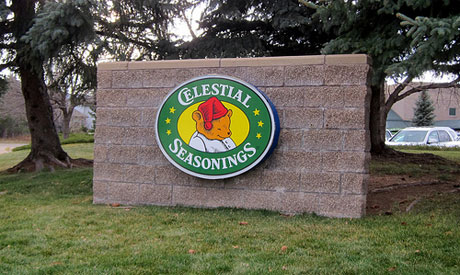
The majority of the Celestial Seasonings teas tested by an independent lab showed high levels of pesticide residue. The findings are part of a report on Hain Celestial, parent company of Celestial Seasonings, which markets its teas as “100% natural” and healthy. Glaucus Research sent samples from 11 of the company’s popular teas to the independent lab, Eurofins. The lab tests revealed that 91 percent of the company’s teas tested violated U.S. pesticide standards in amounts that either exceeded tolerance levels or for which a regulatory limit hasn’t been established under federal law.
Children’s tea samples tested were found to contain traces of a known carcinogen. This includes the Sleepytime Kids Goodnight Grape Herbal Tea sample which contained 0.26 parts per million (ppm) of Propachlor, a known carcinogen that has no safe harbor limit established under California’s Proposition 65. (California voters approved the ballot initiative in 1986 which requires the state of California to publish a list of chemicals known to cause cancer or birth defects. Businesses are required under Prop 65 to put warning labels on products containing the listed chemicals in amounts that exceed the safe harbor limits.)
Read more about Prop 65
Wellness Tea samples also appeared to violate Prop 65. All three teas sampled from the Wellness Tea category contained traces of Propargite, another known carcinogen and developmental toxin that also has no safe harbor limit under Prop 65. The report concludes that it is illegal for Hain’s Celestial to sell teas with such pesticides in California without a warning.
The list of Prop 65 violators includes: Celestial Seasonings Sample Tea Category English Breakfast Black K-Cup Green Tea Peach Blossom Green Green Tea Rasp Gardens Green Antioxidant Max Blackberry Pom Wellness Antioxidant Max Blood Orange Wellness Antioxidant Max Dragon Fruit Wellness Sleepytime Kids Goodnight Grape Herbal Tea sample
The EPA is responsible by law for establishing tolerances (maximum safe limits) for pesticides based on the potential risk to human health. The Food & Drug Administration (FDA) enforces the tolerances. Under the Food, Drug and Cosmetic Act (FDCA) processed food is considered to be “adulterated” and subject to FDA enforcement action if it contains pesticide residue that doesn’t have a tolerance, tolerance exemption, or food additive regulation.
Read more about food practices
The FDA sent two prior warning letters to Celestial Seasonings for quality control issues. The FDA sent the first letter in 2007 in regards to the company’s use of the sweetener stevia in its teas. The FDA sent the second letter in 2010 regarding manufacturing practices at the company’s factory in Boulder, Colorado.
Could the findings lead to decreased sales?
The Glaucus Research report suggests a number of things that could occur given the findings, including fewer consumers buying Celestial Seasonings products after learning the truth. Since Celestial Seasonings is Hain’s “flagship brand” and one of it most profitable, that could hurt the company’s sales. Celestial Seasonings accounted for eight percent of the company’s consolidated net sales in 2012.
Photo Credit: wallyg




